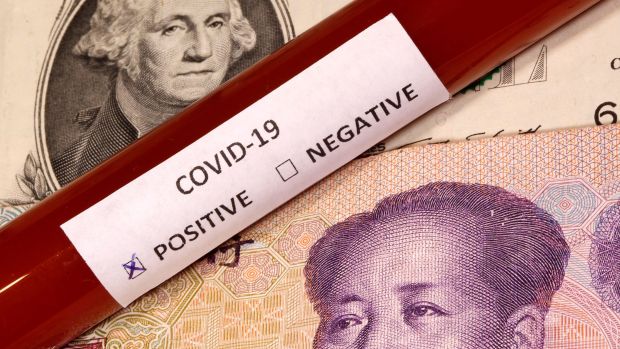COVID-19 Outbreaks Threaten Economic Recovery
By Jeffrey Buchbinder
A new wave of COVID-19 cases threatens to trip up the economy. Increasing cases in Europe and the United States have brought new restrictions on activities, but the market doesn’t appear to be fazed by the recent outbreaks.
Progress on developing vaccines has provided a clear boost to sentiment, but prospects for a divided Congress and the potential for more fiscal policy support also may be playing a role.
New Wave Of COVID-19
Just as the economic recovery was beginning to gain some steam, COVID-19 cases have been rising dramatically in several regions around the world [Figure 1]. The change of seasons is adding to concerns, as colder weather shifts more activities indoors—increasing the chances of viral transmissions.
This has prompted many governments to take greater action to try to curb the spread of COVID-19. Several countries and many states in the United States have rolled back reopening plans and implemented new restrictions such as school closures, nighttime curfews, and even stay-at-home orders.
Economic Effects Of Lockdown 2.0
The new round of restrictions, dubbed “lockdown 2.0,” has already begun to cause a decline in economic activity in the Eurozone. Markit’s composite Purchasing Managers Index (PMI) for the Eurozone, a survey of purchasing managers’ spending plans released Nov. 23, slipped back into contractionary (sub-50) territory at 45.1, dragged down by the services component.
Manufacturing activity remained expansionary at 53.6—highlighting the outsized effects that the COVID-19 outbreak has had on service industries.
While the United States has not implemented the same degree of restrictions as Europe, rising cases already have had an effect on consumer and business behavior. Restaurant-booking data from OpenTable has declined since mid-October, and weekly jobless claims have begun to tick higher—which will be key for consumer spending going forward. If cases continue to rise, we likely will see greater action by local governments to limit high-risk activities, which may further threaten the economic recovery.
Meanwhile, we’ve received positive news on progress toward a vaccine in recent weeks as well as insight into the potential efficacy of the vaccine candidates. This will be key to propping up consumer confidence in the near term. However, the timeline for the actual rollout of the vaccine may take longer than many expect, even with the Food and Drug Administration’s Emergency Use Authorization expediting approval and distribution.
What's Next For Stocks?
With the end of the year rapidly approaching and stocks having exceeded our 2020 year-end fair value target of 3,450–3,500 for the S&P 500 Index, we are focusing on 2021. At this point, we believe the pandemic will recede over the course of 2021, which increases our confidence in a robust earnings recovery.
Other factors supporting the potential for solid gains for stocks next year include a likely market-friendly split Congress (Democrats controlling the US House and Republicans in the majority in the Senate), prospects for additional fiscal stimulus over the next several months, and low interest rates. Look for our 2021 year-end S&P 500 target in our Outlook 2021: Powering Forward publication on Dec. 8.
For 2021 we maintain our equity overweight recommendation that we first put in place in March 2020. Although the latest wave of COVID-19 and lingering political uncertainty present risks to markets, we believe stocks are in the early stages of a new bull market, supported by a durable economic expansion.
We maintain our slight preference for growth-style stocks over value style, but as the pandemic subsides and the economic outlook improves, cyclical value stocks may be poised for sustained outperformance. We would expect this environment to also be favorable for small cap stocks.
LPL Research's Bottom Line
Stocks may not appear fazed by the recent spike in COVID-19 cases in part because of expectations for more stimulus and prospects for vaccine distribution starting as soon as December.
However, underlying economic data has begun to reflect the effects of efforts by governments and individuals to curb the spread of the virus. As we enter a challenging season, the battle against the virus continues.
Everyone please stay safe and be well. Best wishes for an enjoyable holiday season!
Jeffrey Buchbinder is an equity strategist for LPL Financial






Life Insurance Sales To Match Pre-Pandemic Growth By 2022: LIMRA
Even More SECURE?
Advisor News
- Athene Enhances Flagship Annuity Products, Expands Innovative Preset Allocation Feature
- Advisor gives students a lesson in financial reality
- NC Senate budget would set future tax cuts, cut state positions, raise teacher pay
- Americans believe they will need $1.26M to retire comfortably
- Digitize your estate plan for peace of mind
More Advisor NewsAnnuity News
- Athene Enhances Flagship Annuity Products, Expands Innovative Preset Allocation Feature
- GBU Life introduces Defined Benefit Annuity
- EXL named a Leader and a Star Performer in Everest Group's 2025 Life and Annuities Insurance BPS and TPA PEAK Matrix® Assessment
- Michal Wilson "Mike" Perrine
- Emerging digital annuity sales process cutting cycle times by 94%, IRI says
More Annuity NewsHealth/Employee Benefits News
- Recent Findings in Liver Cancer Described by Researchers from Kaohsiung Chang Gung Memorial Hospital (Comparing Health Insurance-reimbursed Lenvatinib and Self-paid Atezolizumab Plus Bevacizumab In Patients With Unresectable Hepatocellular …): Oncology – Liver Cancer
- Missouri Farm Bureau wants to offer health insurance alternatives for members
- Don’t let Texas move Fort Worth-area kids off health plans their families prefer | Opinion
- CT health system’s contract with insurer has expired. What patients need to know about their coverage.
- Keeping insurers in check while assisting North Carolina’s consumers
More Health/Employee Benefits NewsLife Insurance News
- AFBA and 5Star Life Insurance Company Name Erica L. Jenkins Senior Vice President, General Counsel, and Corporate Secretary
- Athene Enhances Flagship Annuity Products, Expands Innovative Preset Allocation Feature
- Empathy Collaboration with Voya Financial Brings Industry-First Legacy Planning to Millions
- Federated celebrates record year despite industry challenges at 121st annual meeting
- Proxy Statement (Form DEF 14A)
More Life Insurance News